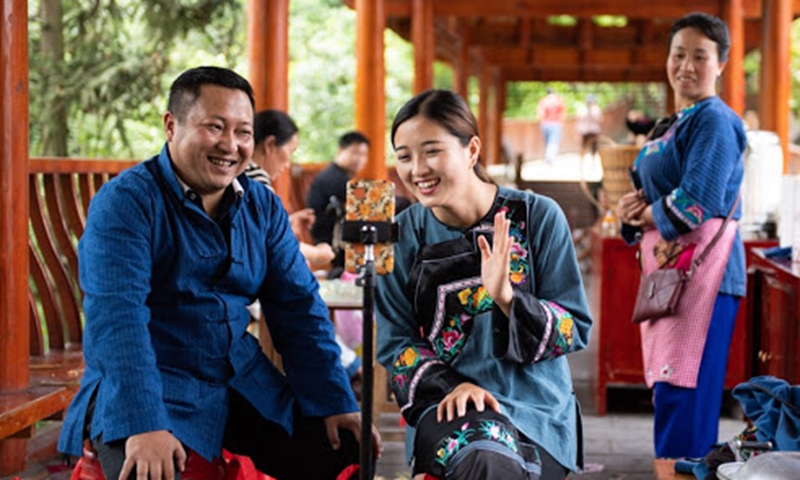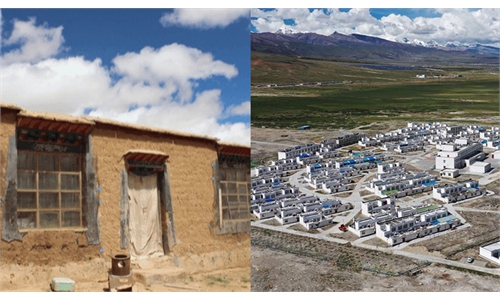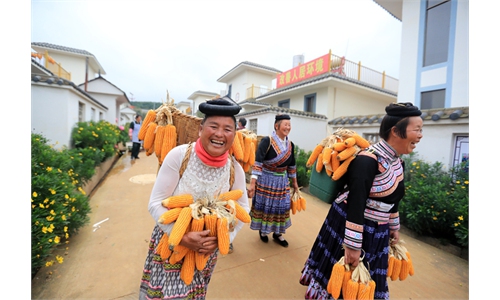Chinese conglomerates, including Alibaba, Wanda praised for poverty alleviation efforts

Photo: Xinhua
Chinese conglomerates including Alibaba Group and Dalian Wanda Group were credited on Thursday in Beijing for their efforts in eradicating poverty over the past years. From characteristic tourism to e-commerce, many business strategies and technological achievements have contributed to the mighty task.
More than 500 enterprises and representatives of enterprises were regarded as advanced models in China's poverty alleviation fight on Thursday, involving industries such as internet, education, agriculture, electricity, energy, aviation and other fields.
CEO of ride-hailing platform Didi Chuxing Cheng Wei, aviation company China Eastern Airlines, property developer Evergrande, telecom provider China Mobile and Shanghai Fosun High Technology (Group) Co were also rewarded.
China has made remarkable achievements in lifting approximately 100 million people from poverty, a hard-won result of top-down policy support, nation-wide solidarity and commercial innovation. Chinese companies have played a vital role.
As a leading online behemoth, Alibaba Group was rewarded as an advanced company among another 1,500 collective units, due to its achievements in helping China's poverty-stricken areas sell local agricultural products.
Over the past eight years, agricultural product sales on more than 20 platforms under Alibaba, a major e-commerce service provider in China, hit 1 trillion yuan ($155.02 billion). In the last three years, the group has helped 832 former national-level poverty-stricken counties sell more than 270 billion yuan.
Advanced technologies are not strange to farmers as the company has cooperated with scientists to apply the Internet of Things, blockchain tracing and big data into smart farms, Alibaba said.
In addition to e-commerce, which helps sell agricultural products in former poverty-stricken areas, other companies have boosted local tourism while protecting the environment and culture for sustainable development.
For instance, Dalian Wanda Group built a vocational college and tourist village in Danzhai county, Southwest China's Guizhou Province to help address poverty in 2014.
The tourist village has received more than 19 million passenger trips in three years, creating 12 billion yuan in tourism revenue for the county and driving 58,800 local people out of poverty by increasing their incomes.
Danzhai's poverty alleviation project has also attracted attention from US researchers. Antonio M. Bento, a professor and director of the Center for Sustainability Solutions at the University of Southern California (USC), told the Global Times in a previous interview that one of the strengths of the Danzhai model is that it doesn't lift people from poverty by just giving them money, but by providing them with the jobs they need to make money themselves.
"In my own work as a researcher, when we think about poverty alleviation, we often think of projects related to poverty alleviation being primarily led by the government, and often by the government alone. So I think what Wanda brings to the table is what I would call 'private solutions to poverty alleviation,' because one way to create a robust poverty alleviation model is by believing in the power of the economy and markets," he said.
Wang Jianlin, head of Wanda, attended the national commendation conference at the Great Hall of the People in downtown Beijing to honor contributors to the country's poverty alleviation work on Thursday.
Global Times


